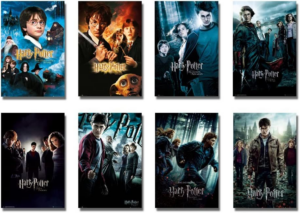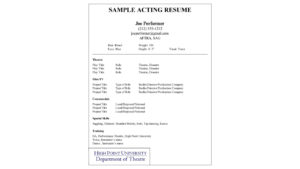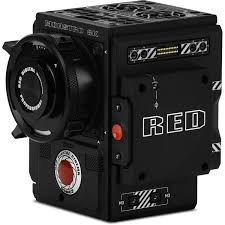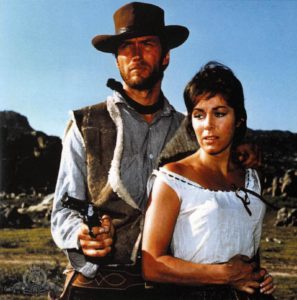A film editor, sometimes called a film and video editor, a movie editor, or an editor for film, is a technical professional who removes unnecessary footage and assembles the remaining pieces together to make finished works. Film editors work on movies, TV programs, commercials, music videos, and other pieces of video content.
Film editors collaborate with other film professionals, including directors, sound editors, and cinematographers. Their work makes sure that films represent their director’s vision and tell their stories in the most engaging and effective ways. When film editors finish their work, the viewing experience should be seamless, as if the footage was never edited at all.
The History of Film Editors
Traditionally, film editors used to physically cut up film and piece it together. After connecting it with tape and glue, they had their final edited work. However, as technology advanced, film editing became more sophisticated. Today, film editors digitally cut film using computer software. This has made the world of film editing more polished and accessible.
Lev Kuleshov is one of the most important film editors in history. This Soviet filmmaker emphasized the power of editing with this video. To create it, he spliced together shots of an emotionless man’s face with other items, including food, a girl in a coffin, and a striking woman.
Audiences viewing the footage ascribed emotions to the man depending on the image juxtaposed with his face. They believed the man showed hunger when they saw the food, sadness when they saw the deceased girl, and lust when they saw the woman. However, every shot of the man had the same neutral expression. Careful editing gave the context that swayed the audience’s point of view.
What Does an Editor Do in Film?
Editors in film perform several tasks to effectively edit video projects. They do most of their work during post-production, but they are a part of some tasks during pre-production and production. Common duties of film editors include:
- Reviewing planning materials including the script, shot list, footage outline, or brie
- Meeting with the director and discussing their vision for the film
- Visiting filming locations to observe the movie’s progress
- Sorting through raw footage during post-production and selecting the most entertaining, dramatic, and effective takes
- Inputting and synchronizing uncut rushes and sound
- Digitally cutting film segments and assembling them in the most logical sequence
- Collaborating with sound editors, sound effects editors, and musical directors on a film’s audio elements
- Inserting dialogue, music, and sound effects into films with editing equipment
- Reviewing edited film, correcting any errors, then preparing it as a first cut for the director and producers viewing it
- Revising the first cut according to the director and producers’ notes, then preparing the final cut for release
Films traditionally used a single film editor. However, modern big-budget movies now use several film editors. These editors split the scenes and perform edits, then switch the scenes and re-edit them as necessary.
Important Skills for Film Editors
Successful film editors use a combination of technical and artistic skills, including:
- Confidence using linear editing software, including Avid Media Composer, Final Cut Pro, Adobe After Effects, and Adobe Premiere Pro
- Critical thinking for determining appropriate edits
- Organization and time management for working on a deadline
- Written and verbal communication skills, including active listening
Are You Suited to Be a Film and Video Editor?
Successful film and video editors have similar qualities that make them well-suited to their roles. Some common personality traits of film editors include:
- Creativity for devising innovative editing solutions
- Passion for film and video editing
- Patience for challenging editing work
- Self-motivation
- Calm demeanor, even in high-pressure situations
How to Become a Film Editor
While some film editors have a bachelor’s degree, this credential is not required. Some kind of formal training can help film editors secure work and advance in their careers. Programs teaching video editing, videography, and film theory benefit aspiring film editors.
Experience working in the film industry is also advantageous. Many aspiring film editors accept internships or work in assistant production roles during study. After graduating, many people interested in editing take roles in production, where they can observe film editors at work.
Working as a runner, digitizer, or production trainee is a good starting point. Hard workers are often promoted to assistant editors before advancing to film editor roles. Most people work in the industry for four to 10 years before becoming film editors.
Helpful Organizations, Societies, and Agencies
The following organizations may help you secure work as a film editor or develop your craft:
What to Expect From a Day in the Life of a Film Editor
Film editors with projects spend most of their time working on their own in the editing booth. These spaces are compact but comfortable. Most of the work film editors do involves sitting at a computer. Editors with their own equipment might work from home on some projects.
Most film editing jobs are near the major production studios in Los Angeles and New York. However, there are independent production companies and post-production facilities in most major cities. After California and New York, Florida, Georgia, and Texas employ the highest numbers of film editors. Film editors do not usually travel for work.
Between projects, freelancing film editors may experience long periods of downtime. This time is useful for building connections and pursuing new work opportunities or further study.
Working Hours
The working hours of film editors depend on the type of project they’re working on. Television and film projects involve long hours, with 50-hour weeks common through post-production. Some employers, such as companies making commercials, may only require their film editors to work during standard business hours. Film editors may work shifts through the night if that’s when editing studios are available. They may also need to work longer hours near deadlines.
Salary
The Bureau of Labor Statistics groups film editors with video editors and camera operators. It states the median pay for these professionals is $59,810 per year or $28.76 per hour. The hourly rate is more relevant for many film editors, as most are freelancers working on a contract basis.
Job Outlook
The Bureau of Labor Statistics lists job growth between 2019 and 2029 for film editors, video editors, and camera operators at 18%. This growth is much faster than the national average. However, the Art Career Project notes camera operation job growth is slowing significantly. This suggests that growth for film editors, whose numbers make up part of this statistic, is even stronger. The growing appetite for new films and television shows, especially for streaming services, and a strong interest in commercials fuels this demand.
Experienced film editors have a better job outlook than people new to the industry. Directors and film studios often enjoy working with the same film editors who have created successful works for them before. Leading directors including Spike Lee, Martin Scorsese, and Robert Wise use the same film editors to give their movies a consistent feel.
Working as a film editor can be a challenging and fascinating job for anyone passionate about the entertainment industry. If you’re interested in learning more about film editor work, apply to Nashville Film Institute to gain professional qualifications as a filmmaker.













